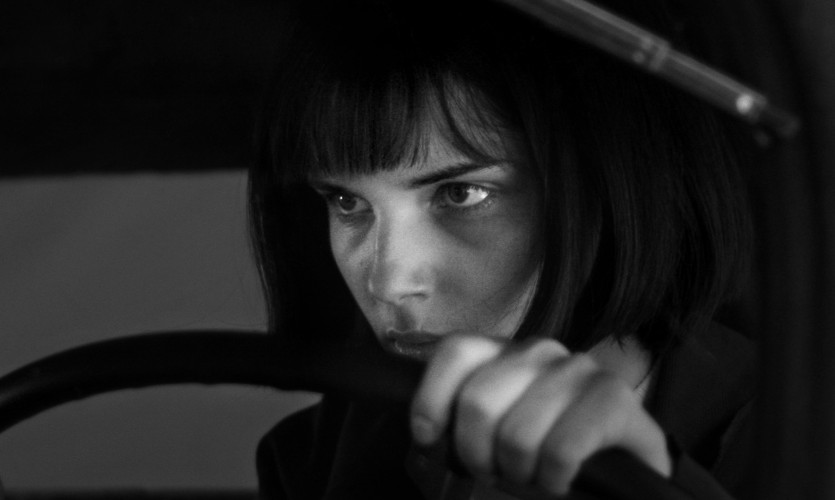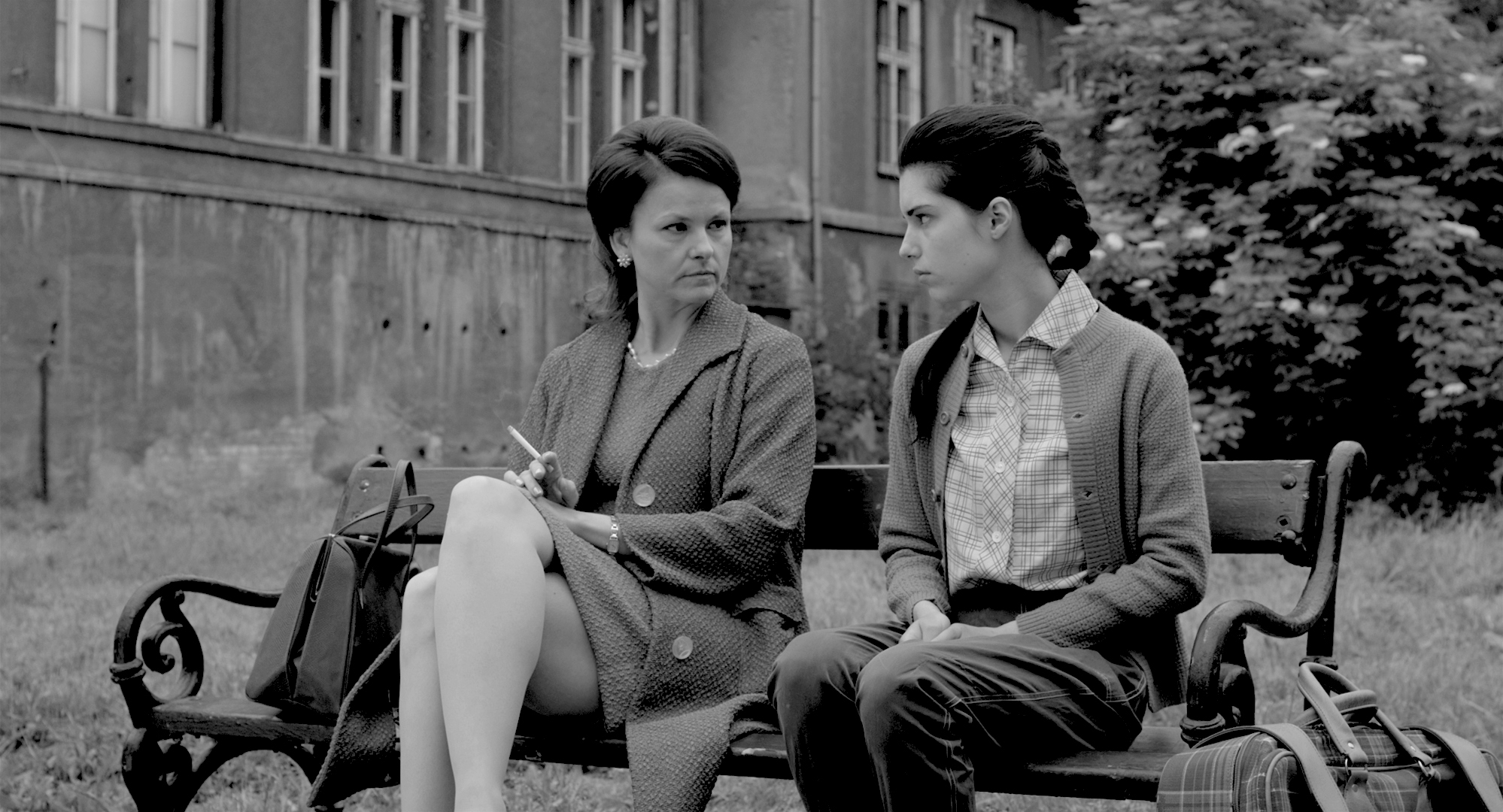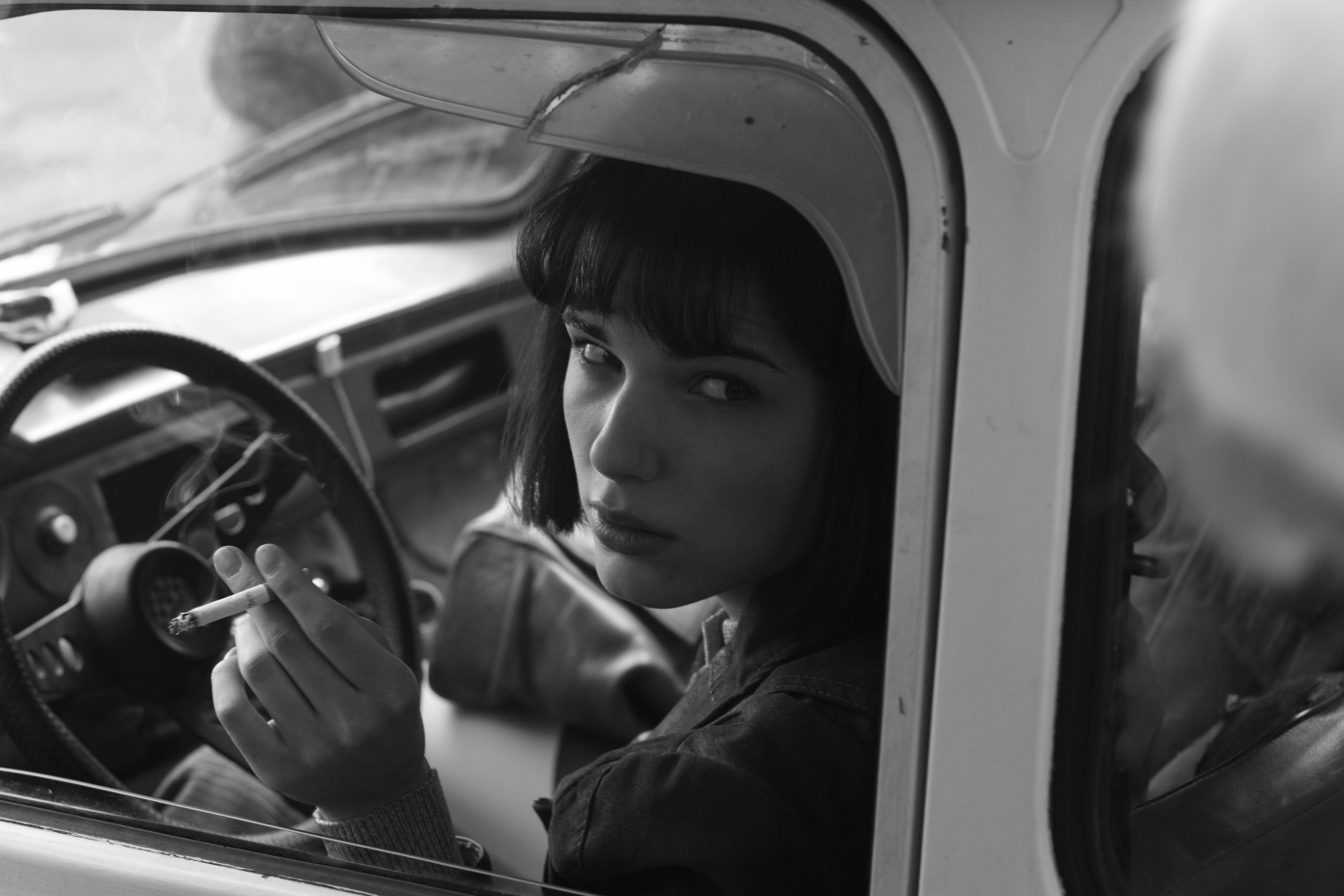
It is a cliché that film biographies attempt to discover the essence of a person – who they were and why they did their noteworthy deeds. This can be a laudable, lofty task. If the subject is the typical “great man” of classic biopics, like Lawrence of Arabia or the titular Aviator, filmmaking can be an exercise in cinematic hero-worship. The task is more complicated, however, when a biopic concerns someone who is decidedly less-than-great: a woman and a mass-murderer, for instance.
I, Olga Hepnarova (Já, Olga Hepnarová) is this kind of biopic. Written and directed by Petr Kazda and Tomáš Weinreb, the story concerns real-life murderer Olga Hepnarová, the last woman to be given the death penalty in Czechoslovakia. In 1973, the 22-year-old Hepnarová drove a truck into a crowd of people on a Prague sidewalk. Eight were killed and 12 others seriously injured. Hepnarová showed no remorse and was sentenced to death for her crime, a punishment she specifically requested.
I, Olga Hepnarova begins with the usual biographical task of establishing the “why” of Hepnarová’s life, revealing childhood miseries as the cause of her adult dysfunction. The film begins as a thirteen-year-old Olga attempts suicide by overdosing on medication. Her stern, well-groomed mother sees this as a failure of character: “To commit suicide you need a strong will, something you certainly don’t have”, she says. Olga’s depression develops into misanthropy. As a teenager, she is bullied by peers and disdained by family. In adulthood, she takes a job as a truck driver and has a few affairs with women. Yet her sexuality only compounds her loneliness. She defines herself as a “sexual cripple”, convinced that she is doomed to be an outsider.

I, Olga Hepnarova
After establishing Hepnarová’s unhappy personal history, I, Olga Hepnarova then sets about answering another important biopic question: who? Who was Hepnarová, and what was the nature of her inner turmoil? This is no small undertaking. I, Olga Hepnarova invites us to be curious about a woman who was rejected by society, and who sought rejection in return. It also raises questions of whether it is desirable – or even possible – to empathise with her.
Other biopics about female killers handle the problem of empathy in various ways, usually by protecting the audience from the protagonists’ darkness. I Shot Andy Warhol, Mary Harron’s film about radical feminist Valerie Solanas, uses humour to soften the impact. Solanas was impoverished, queer and rejected by those around her. She suffered from delusions that compelled her to attack the famous pop artist in his studio. Yet unlike I, Olga Hepnarova, Harron’s film is filled with swagger and irony, allowing distance from Solanas’s worst impulses. Another biopic, Patty Jenkins’s Monster, frames its mass-murdering protagonist Aileen Wuornos as a romantic heroine. The film emphasises Wuornos’s tender love for her girlfriend, giving respite from the degradation of her violent existence.
I, Olga Hepnarova offers no such emotional protection. Weinreb is a former student of documentary at Prague’s FAMU film school, and I, Olga Hepnarova adopts a comparable observational style. Characters move in and out of static, long takes, and there is little music on the soundtrack. Even-toned black and white cinematography casts a cool neutrality over the images. Such aesthetic choices position us as observers to the action rather than involved participants. Austere and compelling, there’s an uncompromising frankness to the imagery, whether Olga is experiencing abuse at school, hooking up with a lover, or driving her truck over dozens of innocent people.
That said, I, Olga Hepnarova also has an evocative quality that pinpoints the details of Olga’s life. The film has an impressive ability to convey the physical grime that so often accompanies depression. Dirt builds up around Olga. She chain-smokes in confined spaces. She sweats in bed, sickened by poor living conditions. As a lover observes, she stinks of motor oil.
The film’s most memorable stylistic feature, however, is its frequent use of close-up on Olga’s face, performed by Polish actress Michalina Olszańska. Kazda and Weinreb describe their film as an “existential drama”, and this conflict unfolds in Olga’s eyes. Olszańska’s face is too young to bear permanent scars of Hepnarová’s bitterness – combined with Adam Sikora’s monochromatic cinematography, she often looks fragile, even pretty. But her eyes express something different. They are hard and rejecting, ringed with dark circles. Framed by a bobbed haircut, Olga’s eyes are the film’s most enduring image of rage and rejection. She is also constantly onscreen, obscuring views of the people around her. By isolating her in the frame, I, Olga Hepnarova trains our focus relentlessly upon its protagonist – until the final devastating scene, we are left alone with Olga and her turmoil for the entire length of the film.

I, Olga Hepnarova
Who was Olga Hepnarová, and why did she drive a truck into a crowd of people? Kazda and Weinreb’s film delivers some explanations for the latter question: childhood misery and adult isolation, for the most part. In terms of “who”, however, the answer lies in Olszańska’s incandescent performance, memorably filled with vulnerability and anger. Yet I’m not convinced that explaining “why” and “who” is necessarily the film’s objective. The point of this biopic lies not in the empathy it invites – although there is certainly some to be had – but in the act of acknowledgement it performs. Olga is not always relatable, but in I, Olga Hepnarova, she is irrefutably visible.
I, Olga Hepnarova screens at ACMI on Friday, 22 September at 9.00pm.










